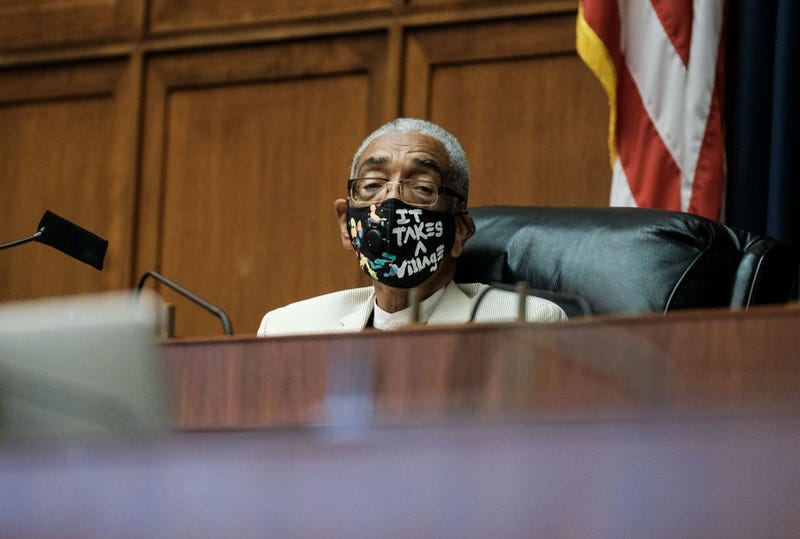
After more than 120 years of attempts, the U.S. Congress finally passed legislation designating lynching as a hate crime Monday with unanimous Senate approval of H.R. 55, The Emmitt Till Antilynching Act.
Now, the bill is headed to President Joe Biden’s desk for a signature.
“This bill specifies that an offense involving lynching is a hate crime act. A violator is subject to criminal penalties—a prison term, a fine, or both,” said a summary of the bill. Included are a maximum prison sentence of 30 years in addition to other federal criminal charges for such a crime.
U.S. Rep. Bobby L. Rush (D-Ill.), co-sponsored the bill and initially introduced it in the 115th Congress. Although the Emmett Till Antilynching bill passed with overwhelming support in the House of Representatives during the 116th Congress in February 2020, it was blocked in the Senate.
It passed the House again Feb. 28 and just three people voted against it: U.S. Representatives Andrew Clyde (R-Ga.), Thomas Massie (R-Ky.), and Chip Roy (R-Texas).
“Under the bill that passed the House today, a crime can be prosecuted as a lynching when a conspiracy to commit a hate crime results in death or serious bodily injury,” said Rush when the bill passed in the House.
This version of the bill differed from the legislation passed in 2020, Rush said. First, the maximum sentence was increased from 10 years to 30 years and second, it applies to “a broader range of circumstances.”
There have been more than 200 attempts since 1900 to codify antilynching legislation and 99 percent of lynching perpetrators escaped punishment, according to Rush.
“A lynching is the public killing of an individual who has not received any due process,” explained the NAACP. “These executions were often carried out by lawless mobs, though police officers did participate, under the pretext of justice.”
According to the organization, white people used lynching to “terrorize and control Black people in the 19th and 20th centuries, particularly in the South. Lynchings typically evoke images of Black men and women hanging from trees, but they involved other extreme brutality, such as torture, mutilation, decapitation, and desecration. Some victims were burned alive,” and photographs of the deceased were often sold as souvenir postcards.
More than 6,500 Americans were lynched between 1865 and 1950, according to a report from the Equal Justice Initiative.
In 1955, Emmett Till – a 14-year-old Black boy – was kidnapped and brutally murdered while visiting relatives in Mississippi.
“The newspaper coverage and murder trial galvanized a generation of young African Americans to join the Civil Rights Movement out of fear that such an incident could happen to friends, family, or even themselves,” according to the Library of Congress.
“I was eight years old when my mother put the photograph of Emmett Till’s brutalized body that ran in Jet magazine on our living room coffee table, pointed to it, and said, ‘this is why I brought my boys out of Albany, Georgia.’ That photograph shaped my consciousness as a Black man in America, changed the course of my life, and changed our nation,” said Rush. “But modern-day lynchings like the murder of Ahmaud Arbery make abundantly clear that the racist hatred and terror that fueled the lynching of Emmett Till lynching are far too prevalent in America to this day.”
Three white men were found guilty of a hate crime last month for participating in the 2020 murder of Arbery, a 25-year-old Black man who was out jogging in Georgia.
“Lynching is a longstanding and uniquely American weapon of racial terror that has for decades been used to maintain the white hierarchy,” said Rush.
Other co-sponsors of the Senate bill were Sen. Cory Booker (D-N.J.), and Sen. Rand Paul (R-Ky.). Paul objected to a similar bill that passed the House in 2020, according to NPR.
“I’m pleased to have worked with Senators Cory Booker and Tim Scott to strengthen the language of this bill, which will ensure that federal law will define lynching as the absolutely heinous crime that it is,” said Paul in a statement issued Monday. “I’m glad to cosponsor this bipartisan effort and I applaud the Senate for quickly passing this important legislation.”
Rush, 75, announced earlier this year that he plans to retire from Congress after his current term. He was first elected in 1992. He is also the lead sponsor of bipartisan legislation that would award a posthumous Congressional Gold Medal to Emmett Till and his mother Mamie Till-Mobley as well as legislation that would direct the Postmaster General to issue a commemorative postage stamp in honor of Till-Mobley.
“I am glad to see this bill receive unanimous support in the Senate – and near-unanimous support in the House of Representatives – and look forward to President Biden signing the Emmett Till Antilynching Act into law very, very soon,” he said of H.R. 55. “At this moment, I am reminded of Dr. King’s famous words: ‘The arc of the moral universe is long, but it bends towards justice.’”


